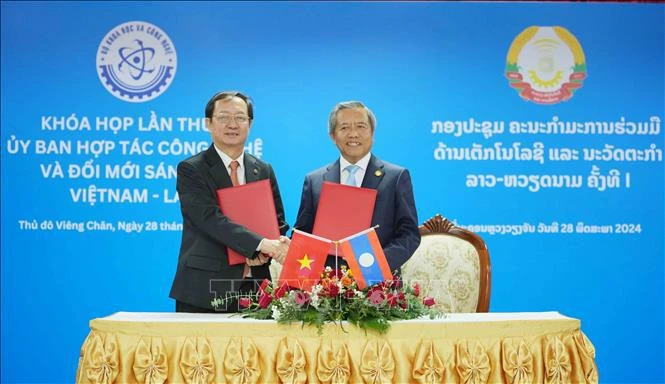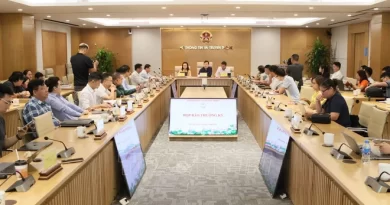Vietnam, Laos step up cooperation in technology, innovation
The first session of the Vietnam-Laos Committee for Cooperation in Technology and Innovation took place in Vientiane, Laos, on May 28.

At the meeting, Vietnamese Minister of Science and Technology Huynh Thanh Dat and Lao Minister of Technology and Communications Boviengkham Vongdara agreed to expand bilateral technological and innovative cooperation. They discussed diversifying forms of joint work to meet the sustainable development strategies of each country and the new international context, in line with the Fourth Industrial Revolution and current global development trends.
The two sides agreed to systematically consult on the organisation and management of technology and innovation to effectively utilise the potential of both countries in this field.
Regarding the collaboration direction for 2024-2026, they agreed to continue sharing experience in state management and policy planning, while supporting the building of institutional and legal frameworks related to high technology, high-tech zones, technology services, innovation management, startups, and technology transfer. It was also concurred that leaders from both ministries will regularly visit and work with one another and that working groups will be exchanged to conduct mid-term assessments of the sides’ implementation of high-level agreements and discuss future cooperation directions.
They will collaborate on research, development, application, and technology transfer in various fields, including Industry 4.0 technologies (AI, IoT, big data, cloud computing), IT, startups, digital transformation, remote sensing technology, geology and minerals, agriculture and forestry, medicine, biotechnology, agricultural product preservation, clean energy, renewable energy, irrigation, water resources, and climate change, among others.
The two sides agreed to organise one or two training courses on sci-tech and innovation management annually. They also encouraged participation in activities and events that promote supply-demand connectivity, technology transfer, startups, and innovation organised by both countries each year.
